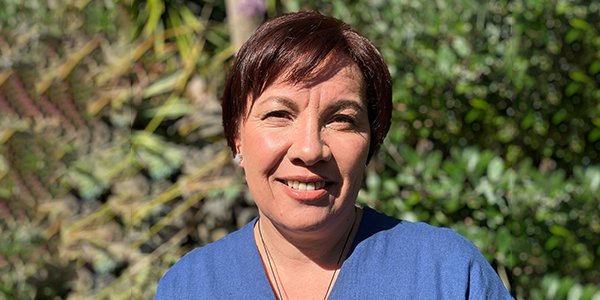The Economic Power of Gender Equality
Reasearch shows that diversity and equal roles for women delivers better results for people, for the planet and for profits.
Pandemic helps focus spotlight on wellbeing and the impact Covid-19 had on people’s lives.

“There is not as much of a stigma around wellbeing as pre-Covid,” says Kāpiti-based Jaqui Taituha Ngawaka MInstD (Ngāti Maniapoto, Ngāpuhi).
Ngawaka is a board member of the Mental Health Foundation of New Zealand and Emerge Aotearoa subsidiary Mind & Body Ltd. She also has a management background in iwi and Māori organisations, and has held several ‘for-purpose’ governance roles.
“One of the silver linings of the pandemic is how obvious wellbeing has become to people, but also the impact that different changes can have on people’s lives,” she says.
As a result of Covid-19, Ngawaka has noticed an increase in social awareness with more workplaces actively participating in campaigns such as Pink Shirt Day, along with activities and events in schools and other public spaces. Sectors such as farming and construction have also created more campaigns within their industries addressing the importance of wellbeing.

Jaqui Taituha Ngawaka
But when dealing with an issue that can be so different for every individual, and where organisations are wrapping their heads around the much wider scope of what wellness means, Ngawaka believes one strategy for boards is to include those with ‘lived experience’ in the discussion.
It is more common for those with what Ngawaka refers to as ‘lived experience expertise’ to be found working in organisations offering targeted services around mental health, including in leadership positions and on boards.
She says recruiters should not shy away from considering those from diverse (including neurodiverse) and ‘lived experience expertise’ backgrounds when making board or management appointments.
Some of the outcomes of diverse recruiting at leadership level includes greater empathy and more open conversations that enable people to feel more comfortable with bringing their whole self to work.
Ngawaka says it is also about putting people before profit, including how an organisation recognises the value of people when it comes to measures such as productivity and customer satisfaction. “You can still be profitable and provide great service when you are developing and supporting diversity in your organisation,” she says.
“You have to be a bit brave about the approach [or strategy] and if you ask people what they want, you need to do your best to make it happen.”
But keeping wellness on the board agenda in the first place is also the right step to change. “It’s about prioritising it, just as you would the key issues on a risk register, or including wellbeing as part of your strategic statement.”
In a post-Covid environment where hybrid working models have been used to lure new talent, the same opportunities that enable a better work-life balance have not been made available for everyone.
Construction, farming, service-based industries and the health sector are showing greater signs of worker fatigue, and continuous staff shortages. Implementing successful wellbeing strategies will require a different approach.
Ngawaka suggests boards consider alternative supports that alleviate stressors through, and from, work. This might include offering assistance with transport or placing more emphasis on ensuring the workplace is somewhere that employees feel valued and want to stay.
She says talking to those on the ground will also illuminate the areas where people may need support. This will also clarify areas of focus and the strategy for the board. But she emphasises that quick fixes should be avoided because there will not be a one-size-fits-all solution.
“You have to be a bit brave about the approach [or strategy] and if you ask people what they want, you need to do your best to make it happen,” says Ngawaka of providing appropriate support solutions.
For those boards trialling new programmes and looking for the right solutions, it may take some time. So how should they recognise if a strategy isn’t working? “Whānau voice,” says Ngawaka, coming back to the importance of understanding the issues from those on the ground.
“If the people you are trying to help are telling you it’s not working, or you aren’t getting any response, then it’s not working. It’s not easy, but the issue is so prevalent we can’t avoid it, or not think about it. Like most things that we know we need, but we don’t know how, we just have to make a start.”
Read more